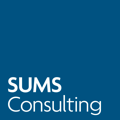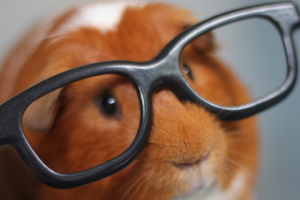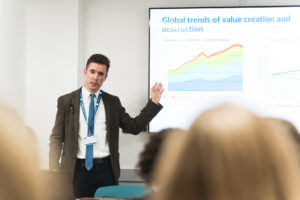
| Date | Author |
|---|---|
| 10th March 2022 | Emma Ogden, SUMS Consultant |
In the lead up to this year’s International Women’s Day, SUMS spoke with ambitious leaders across the Higher Education sector. We wanted to know what inspires today’s successful female leaders, how we can all take responsibility for empowering emerging leaders and how we can help shape a more equal future. Here, SUMS Consultant Emma Ogden shares insights from her recent discussions.
International Women’s Day (IWD) is a time for us to reflect on both the achievements of women and their influences on the world but also highlight and raise awareness about issues that women still face. This year’s theme is #breakthebias, which calls for solidarity in calling out gender bias, discrimination and stereotyping.
IWD is a time to reflect on progress made, to call for change and to celebrate acts of success and determination by ordinary women who have played an extraordinary role. But through breaking the bias, we must recognise the many under-represented groups that still exist – not just those based on gender. Biases around sexual orientation, race and disability among many others continue to have a debilitating impact on our ability to make real and tangible improvements to the workforce. It is important to therefore strive to create a more genuine and equitable workforce across the board.
It is important to celebrate IWD to honour and appreciate the achievements of women around the world and to acknowledge those who continue to go unheard and are prevented from reaching their full potential.
This year, the SUMS Group recognised IWD in collaboration with some inspirational female leaders within the Higher Education sector. The first of these was a filmed roundtable event, which sought to get the panellists’ views on women in leadership and to provide some insight and advice on how current and future female leaders can feel empowered to make a difference. We wanted to know how we can shape a more equal future, particularly considering recovery from the pandemic. Our thanks go to Professor Jane Harrington, Vice-Chancellor at the University of Greenwich; Professor Sally Mapstone FRSE, Principal and Vice-Chancellor at the University of St. Andrews; Professor Zoe Radnor, Provost and Deputy Vice-Chancellor at the University of Law; Dr Ghazwa Alwani-Starr, Chief Operating Officer at Queen Mary University of London; and Jeannette Strachan, SUMS Principal Consultant for kindly giving up their time to share their thoughts and reflections.
We followed up the roundtable with further insight from some of these remarkable women, with added contributions from Sharon Harrison-Barker, Secretary and Registrar at the University of Hertfordshire; Helen Scott, Executive Director at Universities HR and; our own SUMS Consultant, Ruth Buckingham. Here are the important themes we covered.
The Importance of Role Models to Inspire and Encourage
All of the women we interviewed spoke to the importance of strong role models – both professionally and in their personal lives. Role models can help us navigate biases, barriers, and negative stereotyping. They do this through mentorship, coaching, peer support or just through personal and professional inspiration gained throughout a working career. Often, we must create the opportunities we want. Professor Zoe Radnor set up a Women’s Network for Deans in Business, for example, which has now grown to over 12 professional women who are PVCs and DVCs. She finds this an integral network for her to draw on for inspiration, peer support and guidance.
Of course, our role models don’t need to have the same lived experience as we do – and they don’t need to be female. Professor Sally Mapstone noted:
“Levelling the playing field means that one’s aspirations and role models should, themselves, be boundless. I think picking role models and seeking to match or compete against their attainments is actually a really healthy way to guide oneself and career choice”.
What’s important is the alignment of values. We all need someone inspirational, with principles that we believe, are important, to connect with. Dr Ghazwa Alwani-Starr spoke to her Mum’s impact on her life:
“My first, and forever, inspiration is my own mum. Born in Damascus in 1932, she was the first person in her family to go to university in the 1950s after training as a teacher. Starting from a very humble background, she changed the course of her life completely through her strong belief in the transformative power of higher education.”
Championing Others
Our panellists all shared a strong vision for equality and inclusivity and forging a path for other potential leaders. They universally acknowledged that meaningful cultural change requires the participation of everyone within that community and a responsibility to lift others to ensure better representation. There are practical things that can be done to help this:
“I believe it is important as a leader to ensure you create opportunities for other women by supporting, encouraging, coaching, and mentoring future talent. This enables some of those challenges to be overcome.” – Professor Zoe Radnor
But supporting other women – and indeed people from other under-represented groups – can bring added benefits to your leadership. Diversity of thought can only be a good thing in the leadership of an institution. Through that support of others and championing, you’ll be able to strengthen your leadership and demonstrate what is possible for everyone.
“Success needs diversity of opinion and experience. Through team diversity, we are becoming better managers, we understand issues and risks better, we communicate better, and we make better decisions that gain more rapid buy-in.” – Dr Ghazwa Alwani-Starr
“I want to see an increasing draw across from the lessons of women’s equality to the race equality movement, where there is much more to be done. Indeed, I want an increasing emphasis on the intersections here: women of colour are particularly under-represented in leadership roles, and that should be a key consideration in any work programme that aspires to redress gender imbalances.” – Professor Sally Mapstone
Lessons Learned through Leadership
We asked our panellists to reflect on vital lessons that they had learned throughout their journey to become more effective leaders. What came through consistently was that we need to accept that learning is a continual process. Successful leaders must always be willing to reflect and embrace new challenges and consider the impact and outcome from those around them.
The importance of connection, interpersonal qualities and acceptance of differences also resonates loudly. As Helen Scott alludes:
“Humility, courtesy, and kindness cost nothing, but mean everything: you could make or break someone’s day or their future by how you respond, and you set the tone for the behaviour of those around you”.
Having the courage and strength to mature as a manager to focus less on ‘being liked’ and encouraging diversity of opinion and experiences enables stronger leadership as you embrace different viewpoints and possible solutions.
“I have learned over time that I have to value the people who are different to me. It is easy to appoint people with the same views, but it there’s huge advantages to seeking to appoint cleverer and better people who help me do better with an organisation.” Sharon Harrison-Barker.
Acknowledging the Challenges and Obstacles that Still Exist
Our panellists talked about many well-evidenced external obstacles and challenges, from conscious and unconscious biases to balancing home life with work, to being respected as a thought leader and contributor. However, they also spoke to the challenges that are often self-imposed; a lack of self-belief, the felt need to take on ‘different personas’ to meet others’ expectations.
“Be yourself, not a version of someone else. Successful women seem to me often to be assertive, extrovert, very vocal types. However, there is more than one way to lead successfully, and it may vary between settings – the important thing is to be yourself.” – Helen Scott
Biases, whether conscious, unconscious, or subtle, remain an issue. Comments other people make or the order in which individuals are invited to make comments can all demonstrate a bias in the work environment. The panellists felt that fostering a culture of allyship, as a mechanism for people to feel that they can be protected if they speak up, can be a positive way to prevent biases from starting and entrenching.
While much progress has been made to acknowledge the very real physical, psychological and emotional effect of menopause on women, there is an underestimation of the impact. A 2019 survey conducted by BUPA and the Chartered Institute for Personnel and Development (CIPD) found that three in five menopausal women were negatively affected at work. The same study found that almost 900,000 women left their jobs because of menopausal symptoms. Women in this age group are likely to be eligible for senior management roles, and so their exit can lessen diversity at executive levels. These should be addressed positively, through open and authentic conversations.
“I strive to be an authentic leader – I have dyslexia, I am menopausal, but I create authentic and inclusive environments through my own behaviour which normalises our experiences and celebrates who I am. This has not always been well received, but I take pride in the confidence and inspiration it has brought to other women to be who they wanted to be.” – Professor Zoe Radnor
Empowering the Next Generation of Female Leaders
The theme for IWD this year is breaking the bias and creating a gender-equal world, free of stereotypes and discrimination and celebrating diversity, inclusivity, and difference. The next generation of female leaders will benefit from the actions we take today. The creation of a working environment that is more gender equal and free from bias will help the female leaders of tomorrow take their place in leadership positions and empower them to step out from the crowd with belief and conviction. Our panellists shared some thoughts on advice that they would give to these women.
“The generation of students currently at university is one that has come of age resting upon the advances made by the women’s rights movement: many are unaware of just how hard it was to make it in academia as a woman even twenty years ago. That’s paradoxically encouraging, because this generation of men and women alike are, in my view, growing up with a radically reformed and inclusive outlook, and so my hope is that this sort of inclusivity will become more deeply ingrained, and less liable to constant enforcement and reassessment, as this cohort merges into the professional world.” – Professor Sally Mapstone
“I have a simple mantra which I share as part of my mentoring conversations which is “why not me?”. I never had a big career plan, but I would approach scenarios with that question. It is genuinely a two-way question (is this right for me and do I want it)? It enables no decision to be made with other roles until it is offered, and I don’t see a barrier on choosing to apply for a role. Not only has this enabled me to refuse job offers in the past, but it has also enabled me to progress to places I’d never imagined.”- Sharon Harrison-Barker
IWD also seeks to forge inclusive work cultures where women’s careers thrive, and their achievements are celebrated. Proudly working alongside Dr Ghazwa Alwani-Starr, one of our own SUMS Consultants, Ruth Buckingham, coordinated a year-long celebration of 150 years of Women in Higher Education, while at the University of London. This celebration – Leading Women 1868–2018 | University of London – shone a light on inspirational women who powered change in society.
There are many ways universities are addressing barriers – I would point to Athena Swan accreditation, gender pay gap reporting, unconscious bias training and leadership programmes. As an example, in 2020, the Midlands Innovation Commercialisation of Research Accelerator (MICRA) launched the first forum for female academics with the University of Nottingham to explore entrepreneurship as a pathway for delivering societal and economic impact from their research. Outside of the sector, a newly created charity –Women Leaders UK – has been established to recognise outstanding women, promote, and strengthen women’s leadership, and support gender equality and diversity through initiatives such as allyship, mentoring and creating inclusive workplaces. We need to build on these and seek tangible data and insight which can track, measure, and inform impact and effectiveness so that we can continue to ensure the ingrained approach to inclusivity to which Professor Mapstone alludes.
Initiatives supported by SUMS are attempting to challenge and resolve these biases, including coaching and mentoring support, reviews of practices and processes and workshops to facilitate opportunities for peer support and learning.
If you would like any further information or guidance on this, please contact SUMS Consultant Emma Ogden.
Our thanks, again, to our valued contributors:
Professor Jane Harrington
Sharon Harrison-Barker
Professor Sally Mapstone FRSE
Professor Zoe Radnor
Dr Ghazwa Alwani-Starr
Jeannette Strachan
Helen Scott
Ruth Buckingham








